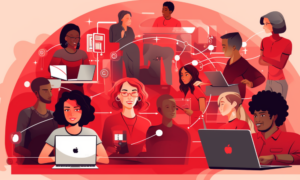Making recruitment fast and fair with video interviews: Arik Akverdian, Founder & CEO, VCV
- 5 Min Read
In this installment of our HRD Tech Founders Q&A series, Arik Akverdian, Founder and CEO, VCV, talks about how video interviews are not only making the hiring process simpler and faster, but are also stripping away layers of bias to make recruitment fairer for everyone. In the near future, will all interviews be conducted by video?
- Author: Michael Hocking
- Date published: Sep 4, 2019
- Categories

What is the true potential of HR and how can technology help us to achieve it?
In this installment of our HRD Tech Founders Q&A series, Arik Akverdian, Founder and CEO, VCV, talks about how video interviews are not only making the hiring process simpler and faster, but are also stripping away layers of bias to make recruitment fairer for everyone. In the near future, will all interviews be conducted by video?

What is VCV?
VCV is an AI-powered platform that facilitates the hiring process for companies, making it more ethical, smart and fast with a preliminary selection of resumes, and by conducting automated screening calls and video interviews with face and voice recognition. VCV is a tool that is already practiced by the world’s biggest brands like Unilever, Mars, PricewaterhouseCoopers, Japan Tobacco International, British American Tobacco, and more.
VCV is a great opportunity to get a full image of a candidate, and to assess and evaluate their candidacy before an actual interview. The advantages of the platform are many: everything is conduced in a remote format with no scheduling and cancellations, enabling recruiters to watch recorded videos anytime and anywhere. You can ask any questions, set up any time for preparation and see how a candidate responds in order to decide whether the candidate meets the requirements of the company. You can also communicate with candidates using chat and voice bots and test their skills. Thanks to our anti-cheating update, you can be sure of the fairness of the assessment. You no longer need to spend hours on interviewing candidates whom you won’t hire, as VCV will do it for you. The platform uses hiring intelligence and predictive analytics to screen further candidates, sending only the best ones for the job.
Why was it necessary to create VCV?
VCV is intended to solve the eternal problems of hiring. The necessity of this product on the market can be explained by three key factors.
Firstly, slow hiring practices result in lengthy delays to the recruitment process, and can bring a series of negative consequences for companies. Companies operating with long and convoluted hiring processes experience challenges that affect their existing workforce, the company’s bottom line, or even future business opportunities. Delays in the recruitment process can not only damage a company’s reputation, but unfilled roles often have a direct impact on business productivity and revenue.
Secondly, the preliminary interview stage (which is used to eliminate those candidates who do not meet the minimum eligibility criteria laid down by the company), also becomes a challenging part of the recruitment process. Proper preliminary selection is one of the keys to the optimization of a company’s time and resources.
Thirdly, unconscious bias can be a huge setback in creating a truly inclusive workplace.
Why is HR technology crucial to business success?
We believe that people are the most valuable asset of any company, and the intelligent transformation of the hiring process is a crucial step towards the future success of all businesses. Optimizing recruitment time and having the opportunity to screen all job candidates is a pivotal task for HR Teams.
How can an organisation most effectively implement new HR technology?
The implementation of new HR Technology requires a complete understanding of the problems that this technology can solve, and companies should set up goals respectively for each of these problems. As a part of the pre-implementation stage, the company should have introductory learning sessions that would give the company’s team a clear understanding of the technology, its uses and benefits. As for the implementation stage, the technology must be used by all members of the team, otherwise it may not work.
It’s important to note that the digitization of the certain processes within the company requires time to implement, adjust and get used to the technology. Comparing collected data and figures on a regular basis might be helpful to track progress and profit.
What do you think is the biggest challenge affecting organisations today?
HR technological solutions shape and change the way organizations structure and function today. However, we still have challenges in the human resources field that must be addressed. One of the most pertinent issues at present is the changing demands of applicants. Nowadays, high salaries and prestigious positions are not the key determining factor anymore; people value freedom. This is not only about exercising creativity, and reassessing how to approach immediate job goals, but also keeping non-traditional hours, working from home, having a flexible schedule or even a remote job.
Another key challenge today is the diverse variety of digital products and solutions; choosing one that satisfies the demands of your company is becoming a tough task. Finally, successful talent acquisition today puts a candidate front and center, which means building a candidate-oriented market. That’s why businesses that want to truly grow through hiring (not promotion and/or workforce strategic decisions), need to be conscientious about how they approach candidates.
Which emerging technologies do you think will transform HR in the future?
Emerging technologies transform the way how HR is perceived. The future HR is all about implementing new technologies such as analytics, digital labor, machine learning and artificial intelligence including face, voice, emotion recognition or AI personality analysis. HR will be critical to the organization’s response to changing market demands, but effectively fulfilling this need will require HR to transform the way it works, and move away from its traditional systems.









